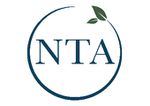What is nutrition?
Nutrition is essentially the study of the intake of food in relation to health. Nutritionists are experienced healthcare professionals who advise on matters related to food and its health implications. They are responsible for providing accurate information about how food choices can promote health and prevent nutrition-associated diseases, including:
- Obesity
- High blood pressure
- Diabetes
- Osteoporosis
- Arthritis
- Gout
- Skin inflammation
- Cardiovascular disease
- Cancer
- Stroke
- Anaemia
- Dementia
For nutrition graduates in the James Cook University area who want to stay current with industry news and access a wide range of career opportunities, the following peak bodies offer membership:
- Australasian Society of Parenteral and Enteral Nutrition
- Australian Health Promotion Association
- Australian Institute of Food Science and Technology
- Nutrition Australia
- Nutrition Society of Australia
Should you study nutrition?
Studying to become a nutritionist enables you to ensure that people eat well and live healthily in all aspects of their life. You will be able to help them manage their nutritional intake and develop healthy eating habits. Nutritionists demonstrate good interpersonal skills, such as those listed below, since they deal with clients from diverse backgrounds and with different needs.
- Patience allows them to work with people of different temperaments and achieve clients' goals quickly.
- Excellent communication skills enable them to explain nutrition in an easy-to-understand way for their clients
- Empathy and active listening skills are vital to be able to understand what a client is going through and its underlying cause
- Strong administrative skills so that they can successfully manage nutrition programs that might involve healthcare organisations or groups like nursing homes, schools, etc.
If these qualities describe you perfectly, health and nutrition are no doubt your calling. Read on to find out what courses you can take to become qualified in the field.
What are the course and study options for nutrition in James Cook University?
An undergraduate degree in nutrition is required for its practice, but there are a variety of paths to becoming a nutritionist. A short sample course can give you an idea of how the course works, so you can choose the right nutrition training program for you.
In comparison, a bachelor's degree program allows you to dive headlong into a broader field of study and receive your qualification at your target date. This 3-year program covers the life and social sciences, as well as nutrition theories, digestive diseases and nutrition counselling, among other topics.
Nutrition courses can be completed online or on-campus, full-time or part-time, depending on the schedule of the student. In fact, if you work a 9 to 5 job, you can study only in the evening or on weekends.
See the full list of nutrition courses and schools located in James Cook University at the top of the page. If you wish to learn more about your preferred school's curriculum, tuition fees, payment options, or delivery method, you may directly contact your preferred school.
What happens after you complete your nutrition course in James Cook University?
After completing a nutrition course, you can choose from a variety of jobs and positions, ranging from chefs and food scientists to sports nutritionists and university instructors. Most nutritionists go on to work in hospitals, schools, aged care facilities, community health centres and sports clubs.
Alternatively, you can work in private practice as a nutrition consultant, providing nutrition services one-on-one to clients with specific nutritional needs, as well as online consultations. Whatever direction you choose for your health and nutrition business, Natural Therapy Pages is a great place to gain and keep clients. Add your services to the practitioner listing page and watch your business grow.
Your nutrition qualification can also pave the way for more opportunities to learn about complementary medicine. Undertaking a training program in one of these fields is a sure-fire way to advance your career:











